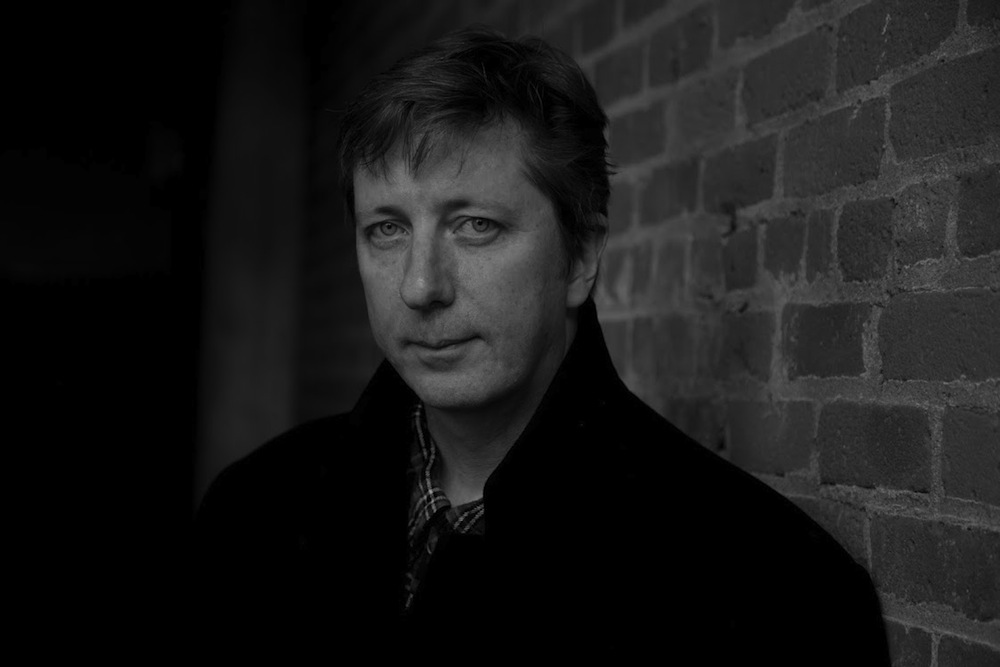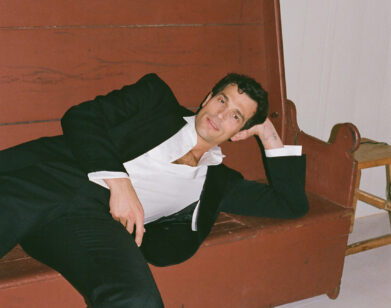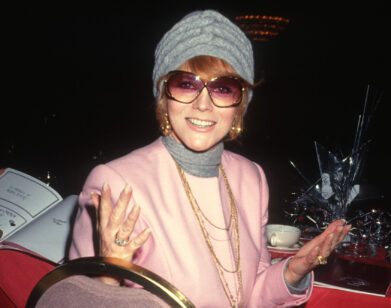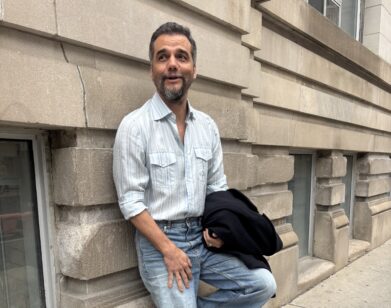Hal Hartley’s April Fools
In Ned Rifle, as in all of writer-director Hal Hartley’s movies, a familiar genre is subverted to form a stylized mirror of itself. In this case, it’s the Western. Henry Fool’s (Thomas Jay Ryan) estranged son, the intensely Christian Ned Rifle (Liam Aiken), is on a quest to murder his father as revenge for having his mother, Fay Grim (Parker Posey), put in jail. Along the way, he picks up a grad student (Aubrey Plaza) with a strange obsession with his family. There’s motel-smashing sex, a gun battle, and more than a little of Hartley’s signature stylized dialog and off-beat characterization. It’s the conclusion of the Fool trilogy, and a worthy successor to the last two movies, Henry Fool (1997) and Fay Grim (2006).
Starting today, Ned Rifle will also be the centerpiece of a retrospective at Cinefamily in Los Angeles that will showcase all of the Henry Fool movies, as well as Hartley’s earlier films Trust (1990) and The Unbelievable Truth (1989).
MICHAEL HAFFORD: I just finished Ned Rifle. What is it that keeps attracting you to the world of Henry Fool?
HAL HARTLEY: The characters, I think. I wrote Henry Fool originally as just a single movie. I didn’t intend to make sequels or anything like that. As we were making the movie, all of us kind of fell in love with these characters. It was easy to imagine the characters in other situations. I didn’t really seriously think about that until a handful of years later. I wanted to make another movie with Parker [Posey]. The two of us thought, “Yeah, well, let’s do something more with Fay [Grim, Posey’s character].” That’s when I started really thinking I had the possibility with this cast of characters—with this family, the Grim family—to every once in a while make a totally different kind of movie about something totally different through the Grim family.
HAFFORD: It seems like all your movies are different in terms of genre but there are elements that get pulled through. The element of the writer, the element of the somewhat mysterious sexualized woman. Are those things that you find popping up or are you exploring them intentionally?
HARTLEY: I don’t know if those are the things I’m exploring, but they’re useful and rich character types. I do think that whatever it is, all of my movies, not just these three but all the past 30 years of work, there is some underlying preoccupation that all of these address in some way. In different ways, with different characters, in different situations. I wish I could say exactly what that underlying preoccupation was exactly but if I could, I probably wouldn’t be telling stories. I need the stories to help me get at it. It’s about responsibility; it’s about people trying to be free on their own terms but also to be responsible to others within their family or the community. Whatever. Or to themselves, to their own consciences. I don’t think logically so much about that sort of stuff. I feel that. Certain kinds of characters help me articulate that.
HAFFORD: What attracted you to writing Ned Rifle as such an intensely religious character?
HARTLEY: Though I’m not religious, I am interested in religion. I read a lot of history and I think it came out of that. I just think I couldn’t understand certain eras of history without knowing what these people believed in. With Ned in particular, I remember I was teaching for a couple years on and off and I found myself around 20-year-olds who were striving to find their own spiritual ground and finding it in Christianity. It was kind of surprising to me. If anyone would have asked, I would have thought Christianity was fading away from our culture. But in fact it was enjoying a new lease on life with younger people. So that intrigued me. And I’m respectful of religion. I hope in Ned Rifle I treat it respectfully but also critically. I see a lot in the world— sometimes people have a religious sensibility but they’re righteous about it and they judge others too harshly. Sometimes it takes adult experience to adjust that. I think that’s what we see here in Ned. When I started crafting the story, I thought, “What’s the most unlikely thing for Ned to be at 18, given that his dad is Henry Fool and his mom is Fay Grim?” And I said, “Religion.” So I took it from there and I said, “Alright, so we’ll start him out as really uncomplicated, solid, Christian gentleman and see how that breaks or doesn’t break.”
HAFFORD: His stated intention from the beginning of the movie is, “I’m going to murder my father,” which is a very Biblical act.
HARTLEY: Yeah, it’s very Old Testament. It might not be very obvious but the structure and story types in my movies—I go back to Westerns a lot. I really feel like Ned Rifle is really organized as a classic Western.
HAFFORD: So were you watching Westerns as you were writing it or thinking about them?
HARTLEY: I did go back. When I was in college I got really interested in Westerns. I took a course, I had a very helpful teacher Tom Gunning who said, “You’ve studied everything else and you’re making your movie. Let’s do an independent study in the Western.” So I watched Westerns pretty closely, wrote about them, thought about them a lot. When I came back to this one, right from the very start I knew that this should feel more like a road movie-Western—some kind of amalgam of those. Me and Liam Aiken [who played Ned] looked at some. I showed him Red River by Howard Hawks and of course The Searchers by John Ford. There’s a father-son relationship in each one. Or father-child. They were totally new to Liam, who’s 24. He didn’t really follow them until then. For myself, I watched a newer one too. I watched Clint Eastwood’s The Unforgiven a few times. That was helpful, the single-mindedness of certain characters and how they break, how their aim hits obstacles and how they change.
HAFFORD: You often write about a central male character who creates success or discord around himself but can’t do it himself. You see it in Henry Fool. Is that something that you’re drawing from your own life in some way? Or is it just something you’re interested in?
HARTLEY: I don’t know. I think I see it in a lot of people. The idea of Henry, a person who is incapable of getting things done himself but is an inspiration to everyone else. That’s an idea that had been banging around in my head for years and years before I wrote Henry Fool. I didn’t know what shape it was going to take. Then I began to see examples of it in literature. Novels, plays, stuff like that. Falstaff in Henry IV. The big talker. The antidote. It’s a different kind of thing—but in my film Meanwhile from 2012, it’s a different kind of character. It’s a guy who can do everything. From fixing your sink to international financing to playing the drums, writing a novel. Massaging your back. But he can’t have any success. Success eludes him. He just never gives up. He’s better for other people than he is for himself, somehow. That’s a different side of that character. I can’t say I’ve ever conceived of all my characters in that way. I think you’re right, you’re pointing to something that’s totally correct, I just hadn’t seen it that way.
NED RIFLE IS SHOWING THROUGH APRIL 9 AT CINEFAMILY IN LOS ANGELES AS PART OF THE HAL HARTLEY FILM RETROSPECTIVE. IT IS ALSO SCREENING IN SELECT THEATERS ACROSS THE U.S.







